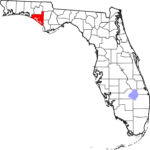LANSING – The multimillion-dollar settlement to resolve civil litigation arising from when the city of Flint switched its public water supply to the Flint River was presented to the court today for preliminary approval, with support from additional entities that recently joined the effort to resolve the lawsuits and provide Flint residents with more financial relief.
Attorney General Dana Nessel, in coordination with Gov. Gretchen Whitmer, announced in August that a preliminary settlement had been reached, with the State then as the only participating defendant. But since then, the City of Flint, McLaren Regional Medical Center and Rowe Professional Services Co. have each agreed to settle the claims against them, bringing the total settlement to about $641.2 million.
The City of Flint has conditionally agreed to contribute $20 million, with money being provided through its insurance provider as opposed to its general fund or otherwise derived from taxpayers. However, the Flint City Council must still approve that decision. McLaren Regional Medical Center is providing $20 million and Rowe Professional Services Co. is providing $1.25 million.
The detailed settlement agreement was submitted to Judge Judith Levy of the United States District Court for the Eastern District of Michigan. Judge Levy will review the agreement as part of a motion for preliminary approval, and later issue a ruling on whether the settlement meets certain legal standards. A public hearing will be held prior to her ruling. If preliminary approval is granted, then the claim registration process can begin, allowing Flint residents the opportunity to indicate their intention to file a claim.
“Submitting this settlement for preliminary approval is part of the legal process, but it is also an important step forward in providing the residents of Flint with relief,” Nessel said. “Without this settlement, which makes affected children a top priority, Flint residents would have been provided little assurance that their claims would be successful in court, and ongoing litigation could have prolonged their hardships for years. Resolving these legal disputes against the State, and now the other defendants who have joined the settlement, is the best possible outcome for Flint’s future.”
Plaintiffs’ lawsuits filed against other entities will continue. Included among those entities are the engineering consultants, Veolia North America and Lockwood, Newnam & Andrews, who are also being sued by the Attorney General for their role in affecting the water supply.
The detailed terms of the settlement agreement filed in court today are contained in a 71-page agreement, with hundreds of additional pages of exhibits, and can be viewed online here. One of the exhibits is a 43-page settlement grid, which provides in-depth details of the proposed settlement compensation categories, and criteria and documents necessary for filing a claim.
The settlement agreement specifies that about 80 percent of the net settlement fund will be spent on claims of children who were minors when first exposed to Flint River water, with a large majority of that amount to be paid for claims of children age 6 and younger, and earmarking 2 percent to go to special education services in Genesee County. Another 18 percent of the net settlement funds are to be spent on claims of adults and for property damage. Roughly 1 percent will go toward claims for business losses.
For Judge Levy to grant preliminary approval, the court will have to determine that the proposed settlement is fair, adequate and reasonable. Once preliminary approval is given, Flint residents will have 60 days to register to participate in the settlement program. Following the registration period, Flint residents that have registered will have 120 days to file the documents necessary to support their claims. This process will be managed by a court-appointed claims administrator.
The settlement agreement provides specific procedures and protections for claimants that are minors and legally incapacitated individuals. The settlement agreement further sets aside a fund for claimants, who were minors at the time of exposure to Flint water, that fail to timely register or submit claims materials required under the settlement agreement.
Monetary awards that Flint residents are entitled to receive will not be issued until after the settlement receives final approval following a public hearing held by the court and after the time for any appeals of that order have expired.
If the settlement receives final court approval, it is likely to be the largest in Michigan state government history, affecting tens of thousands of people and resolving more than a hundred cases in state and federal trial and appellate courts.
The amount of money to be paid to individual claimants won’t be determined until the claims process proceeds as it depends, in part, on the number of claims submitted and found to be eligible. The claims process will be overseen by a neutral court-appointed claims administrator and will take several months after the agreement receives final approval. Attorney fees will be determined by the court at a later date, prior to the settlement receiving final approval.
Additional details surrounding the settlement, including compensation categories, eligibility criteria, the claims process and more is available online.
Click here to view a video message from Attorney General Nessel.






 18 Nov 2020
18 Nov 2020
 Posted by BP Journal
Posted by BP Journal 













